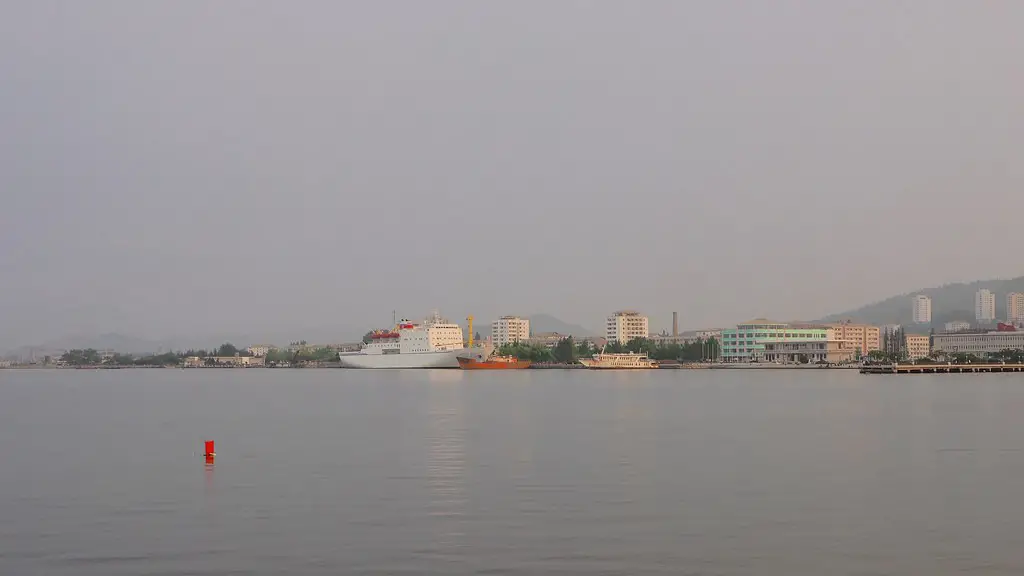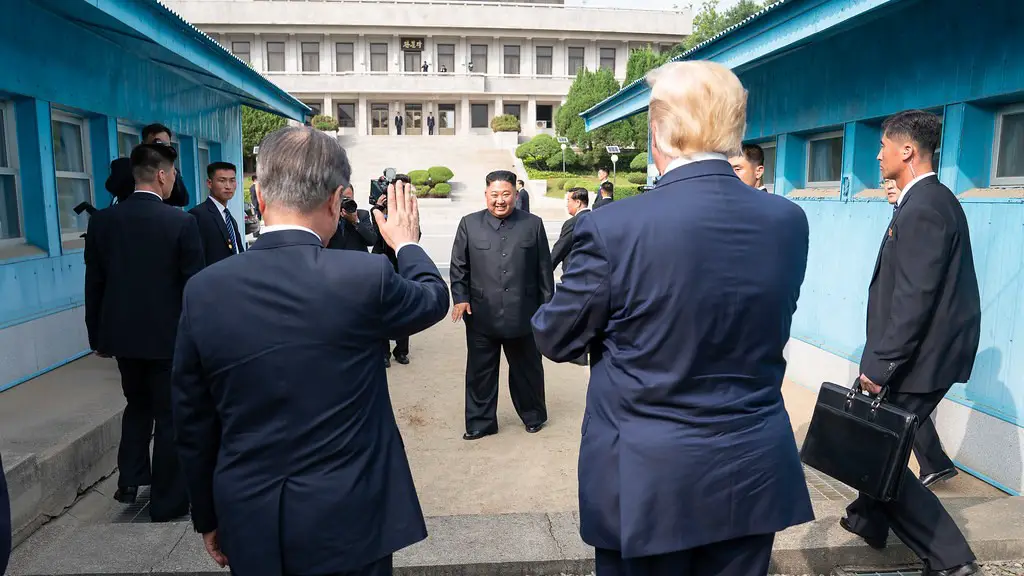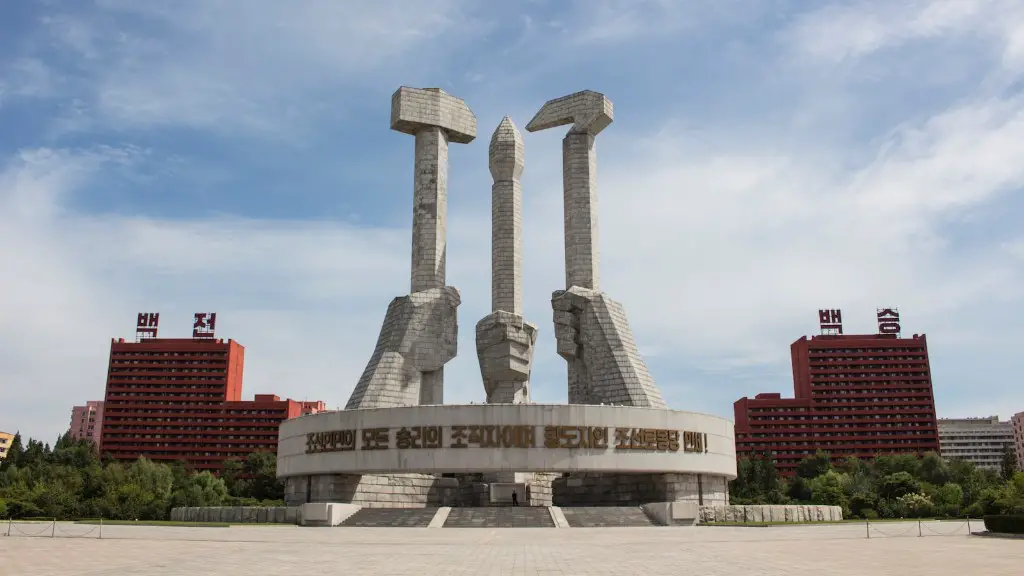Who is North Korea?
North Korea is an authoritarian, totalitarian nation located in East Asia, bordered by China and Russia, and south of South Korea. The state is led by a supreme leader, Kim Jong-un, and his Workers’ Party of Korea is an officially atheist state. The economy of North Korea is a centrally planned system, where the state controls all economic activities. Human rights are severely curtailed, and many political prisoners are held in the nation.
The nation’s foreign policy is largely isolationist and nuclear armed. The government’s policies often defy the principles of international law and deny its citizens basic civil, political and economic rights. North Korea has been accused of stockpiling nuclear weapons and ballistic missiles, and is the only nation to have tested nuclear weapons in the 21st century.
North Korea maintains one of the world’s largest and most powerful militaries and is capable of employing sophisticated techniques, such as cyber warfare and information manipulation. The country is also known for its human rights abuses and its cult of personality surrounding the Kim family.
Why We Should Stop North Korea
We should stop North Korea because of its nuclear weapons program and human rights abuses. The global community has a responsibility to take action, as the danger and consequences of nuclear proliferation posed by the nation are too great to ignore. North Korea’s nuclear arms and advanced weapons technology present a grave threat to the stability and security of all nations in the region, as well as to global security and peace.
The nation’s human rights abuses are also concerning and should not be ignored. There is evidence that North Korea holds political prisoners, enforces collective punishment, and restricts religious beliefs. The government has also been accused of carrying out arbitrary arrests, punishing those found guilty of criticizing the country or the supreme leader, and persecuting those who have contact with foreign entities.
In addition to its military capabilities, North Korea has an extensive cyber program, which has enabled the government to launch devastating cyberattacks on its neighbors and around the world. North Korea’s cyber activities are destabilizing and in violation of international laws, and have proven to be a major threat to global security and safety.
The Impact of Stopping North Korea
Stopping North Korea would have far-reaching implications for both the region and the world. It would make the threat of nuclear war and the development of nuclear weapons considerably lower, and it would reduce the risk of a devastating global cyberattack. It would also reduce the risk of North Korea’s advanced weapons being sold to hostile states or non-state actors, and it would potentially help alleviate some of the human rights abuses carried out by the nation.
In addition, a successful campaign against North Korea could help stimulate economic growth and development in the region. It could provide an opportunity for greater regional integration, as North Korea could be brought into the international community and its citizens could benefit from global trade and investment opportunities.
Finally, stopping North Korea could also create the potential for greater global security and respect for human rights. Eliminating the threat of nuclear war and cyberattacks, and reducing the region’s reliance on military threats, would help establish a more just and peaceful regional order.
The Challenges of Stopping North Korea
Stopping North Korea poses a number of challenges for the global community. The nation has been resistant to international pressure in the past, and there is a good chance that it will continue to be so in the future. North Korea also has an extensive network of allies and armaments, which it could use to retaliate against any attempts to interfere with its activities.
In addition, the nation is heavily reliant on outside sources for its economy, and any attempts to restrict aid or investment could have a severe impact on the state’s economy. This could lead to further instability and increase the likelihood that the nation would resort to more aggressive actions.
Finally, any action taken by the international community against North Korea could also damage the nation’s relationship with its neighbors, increase tensions in the region, and worsen the human rights situation within the country.
The Role of the International Community
The international community can play an important role in stopping North Korea. Countries around the world need to work together to put economic, diplomatic, and military pressure on the nation in order to bring about change. Sanctions and negotiations will be necessary to bring about a peaceful resolution to the conflict.
In addition, the international community needs to take action to address North Korea’s human rights abuses. Increasing public pressure and introducing measures to hold those responsible for these abuses accountable will be crucial to bringing about meaningful change. Countries should also take steps to ensure that North Korea is held to the same standards with regards to human rights as other nations.
Finally, the international community must work together to develop strategies that will offer economic incentives to North Korea, while still maintaining pressure on the nation to end its nuclear weapons program and human rights abuses. These incentives should include trade and economic assistance, as well as assistance in developing the nation’s infrastructure and improving education.
Conclusion
North Korea is a dangerous and destabilizing force in the world and its nuclear weapons program and human rights abuses must be addressed. The international community has a duty to take action to stop North Korea, and this can be achieved through a combination of economic, diplomatic and military pressure. Human rights must also be protected and the nation must be held accountable for its actions. The global community must also develop strategies to offer economic incentives to the nation, while still pressuring it to end its nuclear weapons program and human rights abuses.




